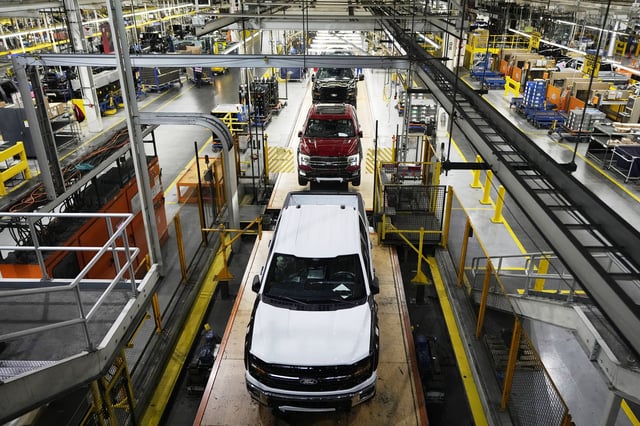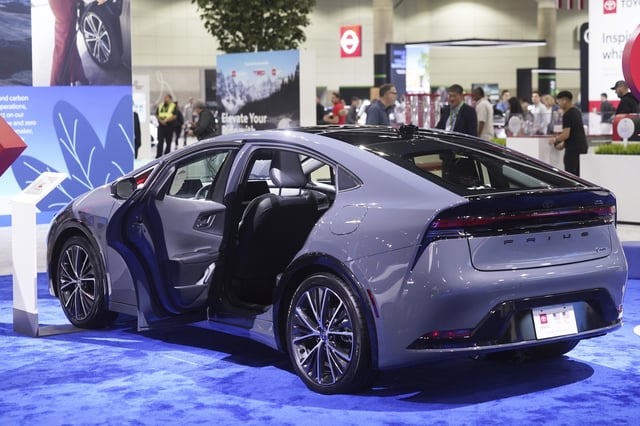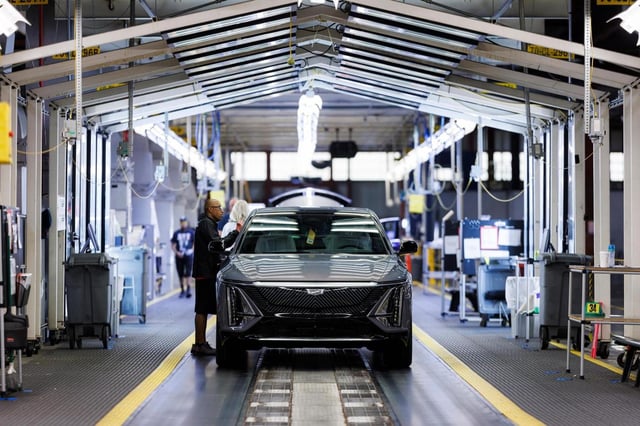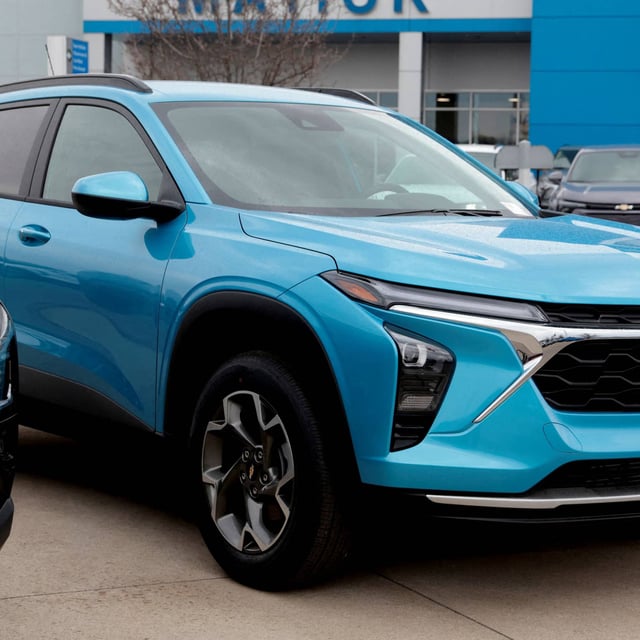Overview
- The Trump administration's 25% tariffs on imported vehicles and parts are set to take effect on April 3, 2025, likely raising car prices by $5,000 to $10,000.
- General Motors reported a 17% increase in Q1 sales, delivering 693,353 vehicles, its strongest first-quarter performance since 2018, with electric vehicle sales nearly doubling.
- Ford's Q1 sales declined by 1.3% to 501,291 units, partly due to the discontinuation of the Ford Edge, though March retail sales rose 19% as consumers hurried to buy before tariffs.
- Affordable vehicle options continue to shrink, with only 13% of new cars priced under $30,000, down from 37% five years ago, a trend expected to worsen with the tariffs.
- U.S. retail inventory levels surged 31.3% year-over-year in March, reaching 2.2 million units, driven by a pre-tariff buying spree from consumers.



